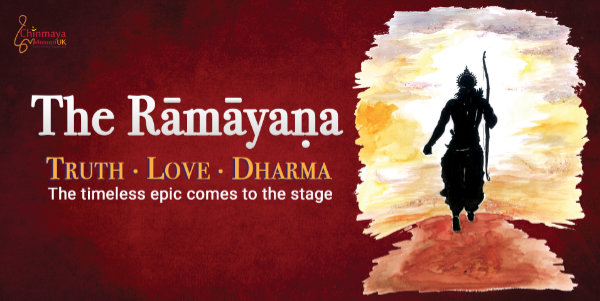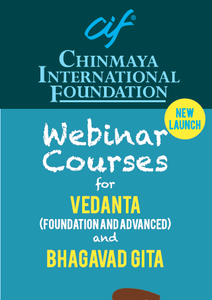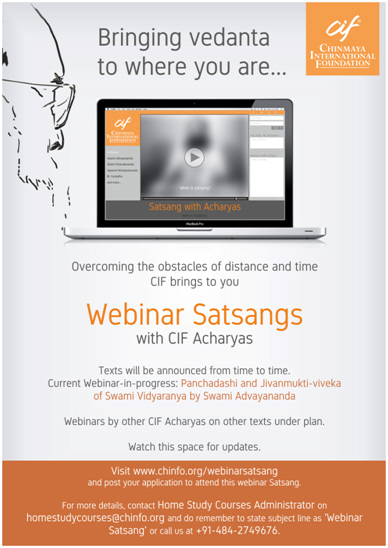 Everyone wants to be happy. This is the motivational force for everyone. The Vedas acknowledge this. The first part of the Vedas – karmakANDa – is effectively aimed at those who look for their happiness in external, limited, objects and pursuits; the latter part of the Vedas – j~nAnakANDa – is aimed at those who are looking to find the happiness within, through gaining knowledge of their true nature.
Everyone wants to be happy. This is the motivational force for everyone. The Vedas acknowledge this. The first part of the Vedas – karmakANDa – is effectively aimed at those who look for their happiness in external, limited, objects and pursuits; the latter part of the Vedas – j~nAnakANDa – is aimed at those who are looking to find the happiness within, through gaining knowledge of their true nature.
Here is a brief article from Ramesh Pattni, called
WHAT IS VEDANTA? VEDANTA AND THE PURSUIT OF HAPPINESS
The pursuit of happiness has been the foremost goals of humanity from time immemorial. There is, however, a diversity of understanding and experience of happiness across traditions and cultures around the world. Eastern traditions which offer great insights into the human condition and psychological processes, have a universal appeal which point towards attainment of happiness by different means.
The development of Positive Psychology in recent decades has focused on the study of happiness and wellbeing and examined evidence for the ways and means to happiness. Currently there are two dominant Western approaches to human happiness and well‐being: Hedonic and Eudaimonic perspectives. The former is based on the idea that pleasure is the only intrinsic good, and obtained through the contact with the world of objects. The eudaimonic approach is that happiness is an end in itself and the highest good and based on a life of virtuous living and contemplation. Continue reading →


 Everyone wants to be happy. This is the motivational force for everyone. The Vedas acknowledge this. The first part of the Vedas – karmakANDa – is effectively aimed at those who look for their happiness in external, limited, objects and pursuits; the latter part of the Vedas – j~nAnakANDa – is aimed at those who are looking to find the happiness within, through gaining knowledge of their true nature.
Everyone wants to be happy. This is the motivational force for everyone. The Vedas acknowledge this. The first part of the Vedas – karmakANDa – is effectively aimed at those who look for their happiness in external, limited, objects and pursuits; the latter part of the Vedas – j~nAnakANDa – is aimed at those who are looking to find the happiness within, through gaining knowledge of their true nature.

